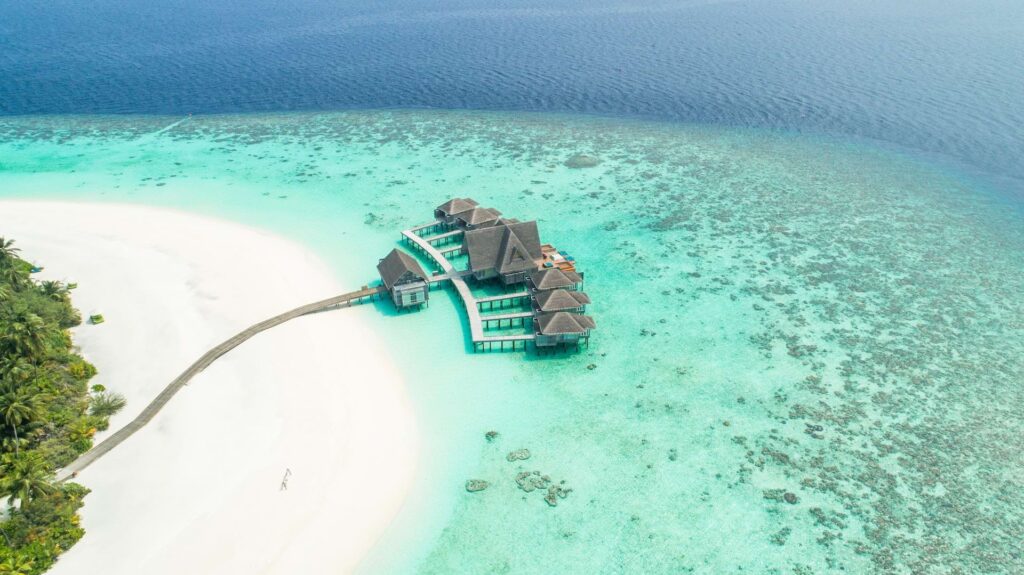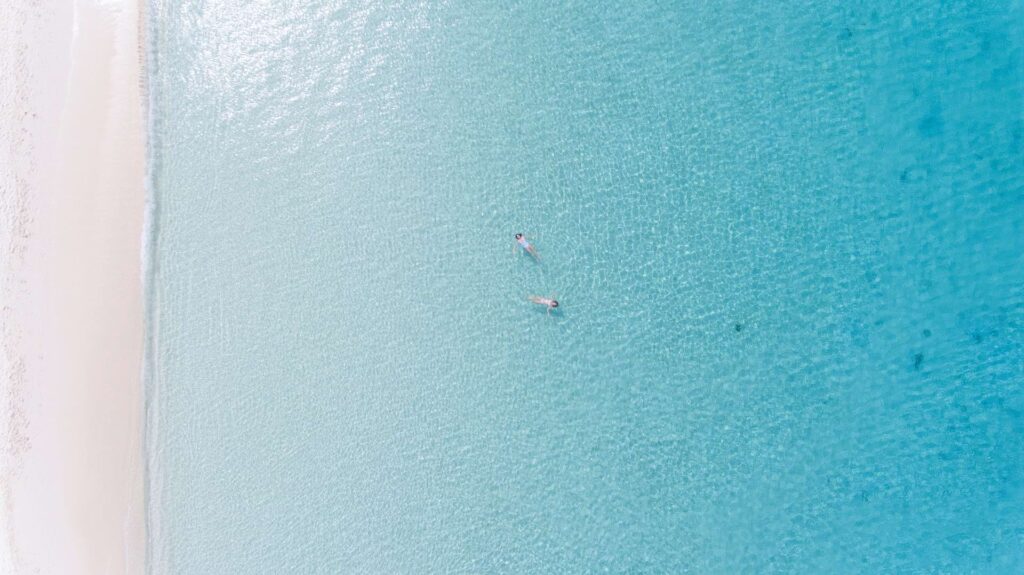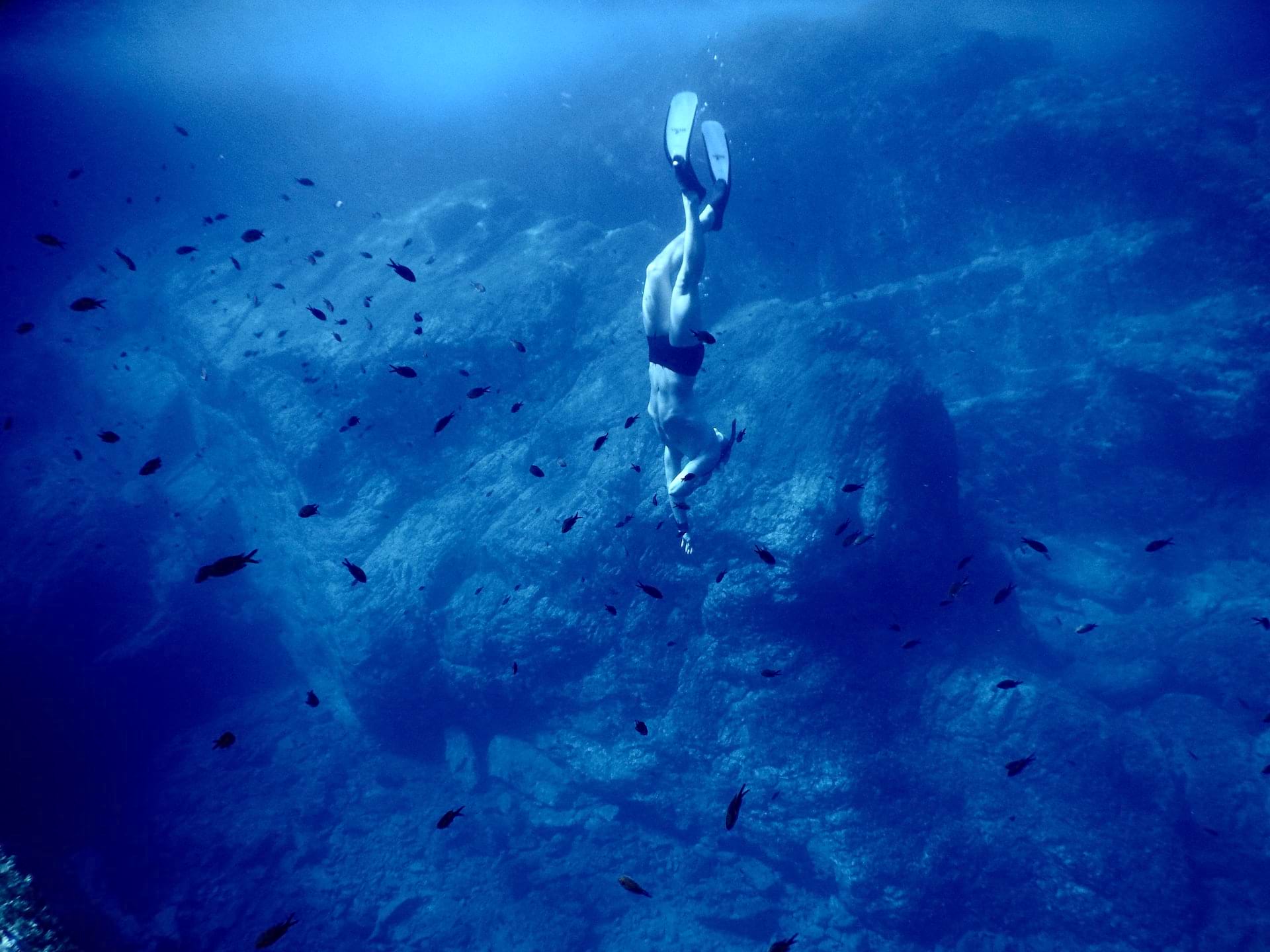If you don’t know how to swim, you probably think it’s a bad idea to go scuba diving. But the reality is it’s a low-risk activity that almost everyone can enjoy – even non-swimmers.
You don’t need prior diving experience, and swimming isn’t a requirement for scuba diving for the first time.
If you’d love to give diving a try, this post is dedicated to scuba diving for non-swimmers – we’ll give you everything you need to know.
What You Need To Know Before Scuba Diving: Health And Safety
Whether you’re confident in the water or a total newbie, there are some important health and safety points to know before scuba diving.
You may need to be certified
Many dive operators require proof of certification or speciality competency for certain types of dive. If you’re planning to dive for the first time, make sure you choose an introductory dive course (or taste tester) that allows non-swimmers to participate.
If you do dive without certification and without a certified diver, you won’t be covered by your travel insurance should something go wrong.
Check your fitness levels
It’s always best to schedule a physical to ensure you’re fit and healthy before going scuba diving. If you’re generally in good health, you probably won’t have any problems. However, certain health conditions can make scuba diving a risk, so it’s always best to consult your physician.
Find a certified diving school
You’ll find recommended diving schools online for all coastal areas where scuba diving is popular. Make sure you find one that is well-established with quality equipment and boats.
Speak to the instructors beforehand to check their credentials – you need a certified diver even for taste tester days.
Listen to your diving instructor
When you’re new to diving, listening to your dive instructor is crucial. They will give you essential safety information, teach you hand signals, and show you how to dive safely. Once on the boat, follow your instructor’s brief and make sure you communicate with them throughout the day.
Take a buddy
The buddy system is used by new and experienced divers alike. Having a buddy is important for gear checks, helping if something goes wrong underwater, and for making sure you’re not left behind.
If you’re planning on going scuba diving solo, make friends with someone on the boat and ask to buddy up to be safe.
Get the right insurance
There is specific travel insurance that covers scuba diving activities, so make sure you get the right one. A lot of travel policies explicitly omit water sports of any kind, so it’s important to make sure you’re fully covered.
How To Get Started With Scuba Diving: Lessons And Equipment

The key to getting started with scuba diving is finding the right scuba school. Beginners classes usually provide equipment and will give you a full briefing to get you started.
Choose a scuba diving course
From scuba diving in Tulum, Mexico, to the Great Barrier Reef, there are countless diving courses across the world that allow non-swimmers to try out diving.
Beginners’ courses will cover the basics of diving and start in a pool so you can get used to the equipment.
Fortunately, there really isn’t much swimming involved in scuba diving. But if you’re nervous about the water, you’ll be able to find your confidence either in a shallow pool or enclosed water.
When doing your research, make sure you find a certified instructor with great reviews.
Buy or rent dive gear
Most basic scuba dive courses will rent you all the gear you need as part of the school fee. However, you can also buy or rent your own gear if you plan on diving often.
Here’s a list of the basics you’ll need:
- Scuba mask
- Fins
- Snorkel
- Regulator
- Wetsuit
A wetsuit should fit snuggly, so it might be worth buying your own if you plan on becoming an avid scuba diver. This will allow you to get a great-fitting, high-quality suit.
The other equipment is easy to rent – just make sure you do a thorough check and review the brands on offer. High-quality gear is crucial for a safe dive.
The Training: How To Get Certified To Scuba Dive
You’ll start with a beginner’s course that covers all the basics of scuba diving. In these classes, you’ll cover:
- How to put on your gear
- Hand signals
- Buoyancy tips
- Safety tips and information
Most beginner courses won’t certify you for diving, so you’ll have to take additional classes if you want to go diving alone.
These additional classes will cover the basics and give you more hands-on diving experience in enclosed facilities and open water.
Master Scuba Diver (MSD) is the highest qualification you can hold in scuba diving. To get this, you need to complete Open Water Diver, Advanced Open Water Diver and Rescue Diver certifications.
Where To Go Scuba Diving: The Best Spots For Beginners
There are some fantastic scuba schools all over the world, but if you’re looking to book a trip, here are our top three recommendations for beginners.
Maldives

The Maldives is known for its warm, calm waters, so it’s a great place for beginners to learn how to scuba dive. The waters are warm year-round, and you’ll have visibility up to 30 meters.
Many of the resorts have PADI diving schools, several of which are within the UNESCO World Biosphere Reserve, home to tropical fish and turtles.
The Maldives is also the only place where you’ll spot whale sharks year-round, so it’s a truly fantastic place to learn to scuba dive.
South Africa
Sodwana Bay National Park on the Elephant Coast in South Africa has several PADI diving centers. Here, you can combine a safari with scuba diving, and expect to see turtles, dolphins, and even sharks on your beginner scuba diving course.
Cayman Islands

The Cayman Islands have the best visibility in the Caribbean for scuba divers (up to 30 meters). The waters are warm year-round and the current is mild, perfect for non-swimmers.
Grand Cayman is the most popular island for scuba diving, where you’re almost certain to see a turtle on your dive. Stingray City is a world-renowned shallow water dive (just five meters) and is another great option for non-swimmers.
What To Expect When Scuba Diving
You probably feel a little nervous about your first dive as a non-swimmer, so here’s what you can expect from the experience.
You’ll start with a brief
Before you even get in the pool, you’ll get a full safety briefing that covers breathing rules, equipment, hand signals, and important safety rules. This is the perfect opportunity to ask questions if you’re unsure of anything.
Practicing skills
Next, you’ll practice all the essential diving skills in confined water that you can stand up in (this is usually a shallow swimming pool). It can be daunting learning to breathe with the mask on, so knowing you can stand up at any time will help give you confidence.
Your first open-water dive
Once you’ve got the basics mastered, you’ll go on your first open-water dive. You are only allowed to go to a maximum depth of twelve meters, but many stay much closer to the surface to get used to the scuba gear.
You won’t be required to go down to twelve meters, and you can spend the entire session snorkeling near the boat if you’d prefer!
Tips on Scuba Diving if You’re a Non-Swimmer

If you’re not a strong swimmer or you’re nervous about the water, here are some top tips for your first scuba dive.
Communicate with your scuba diving instructor
Make sure your scuba instructor knows that you can’t swim and you might need some extra help building your confidence in the water. Good instructors will help you get the basics of buoyancy and safety in the water without any issues. If you feel a lack of interest from your instructor, that’s a sign to find a different one!
Ask lots of questions
Good scuba diving instructors will happily answer any and all of your questions, no matter how silly they might seem. Ask lots of questions and make sure you feel confident before you get in the water. If you feel uncertain at any point, ask for help.
Brush up on your diving knowledge
Knowledge is power, so the more you know about diving safety beforehand, the more prepared you’ll be. Brush up on your scuba diving knowledge before you go to your lessons and you won’t feel overwhelmed by all the safety information.
If you can get a swimming lesson beforehand, this might also help build up your confidence.
Take a friend with you
It’s always good to dive with a buddy, but you might feel more confident if you take a friend with you, rather than buddying up with someone also on the course. You need to buddy up with someone you trust to watch your back as you watch theirs.
Stay well hydrated
You probably won’t feel very thirsty being in the water for long periods of time, but you’ll become dehydrated very quickly. Make sure you take a lot of water and drink consistently throughout the day to avoid the effects of dehydration.
Relax and enjoy
Most importantly, enjoy yourself! Scuba diving is a unique experience and one you’ll remember forever. The more relaxed you are, the better your dive will be and the more you’ll appreciate the marine life.
Find Out How Much Certification Costs
Don’t let the fact that you’re a non-swimmer put you off scuba diving – it’s a fantastic experience that everyone should try if they can.
Scuba diving is about sinking more than staying afloat, so you won’t even notice your lack of breaststroke skills when you’re down in the deep exploring.
If you’re wondering how much it costs to get certified, head to our next post where we break down the costs.

